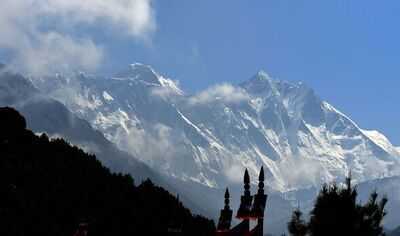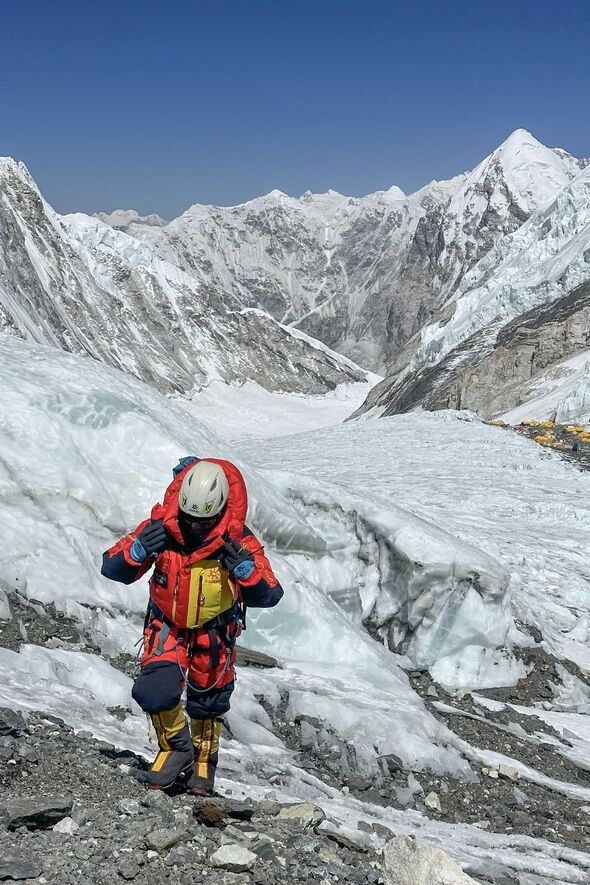

Climbers wishing to scale Mount Everest will soon see a sharp rise in permit fees - in a bid to ease congestion on the world's highest peak.
Nepal yesterday announced the jump in fees - the first for nearly a decade - for the permits requited by thrill-seekers and professional climbers to be able to attempt the mountain.
As a result, from September, those seeking to summit the world's tallest peak during high season will now have to pay $15,000 (£12,180).
This is a 36per cent rise on the longstanding fee of $11,000, officials said.
Fees for those wanting to climb outside the peak April to May period will also increase by the same percentage - meaning it will cost $7,500 during September to November, and $3,750 during December to February.
Income from permit fees is a key source of revenue for Nepal, with mountain climbing and trekking contributing more than 4per cent to the country's economy.

But mountaineering experts have long criticised Nepal's government for allowing too many climbers on Everest, with about 300 permits to the mountain issued per year.
Long queues have been seen on the mountain at peak times for many years now.
It remains unclear though if the price increase, which was under discussion since last year, will slow down demand.
"The royalty (permit fees) had not been reviewed for a long time," Narayan Prasad Regmi, director general of the Department of Tourism, said.
"We have updated them now."
Regmi did not specify how the extra revenue would be used.
In April 2024, Nepal's Supreme Court ordered the government to limit the number of mountaineering permits issued for Everest and other peaks, saying that the mountains' capacity "must be respected".
The preliminary order did not set a maximum number, though.
Amid concerns about overcrowding on Everest and climbers queuing in dangerous conditions to reach the summit, the Nepalese army in 2019 began conducting an annual clean-up of the mountain, which is often described as the world's highest garbage dump.
In that time at least five clean-ups have collected 119 tonnes of rubbish, 14 human corpses and some skeletons, according to the army - but it is estimated that a further 200 bodies remain on the mountain.
Nepal is home to eight of the world's 14 highest mountains, including Everest.